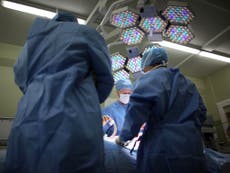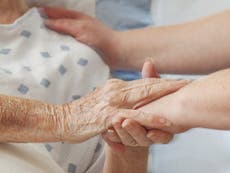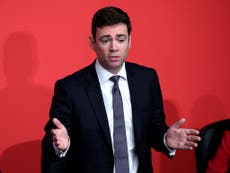The latest NHS cuts aren't about health. They're about blame
Tough choices don't just have to be made by doctors - they have to be made by patients, too

Right, pay attention everybody. We’ve some tough choices to make. The NHS has to make £22bn of efficiency cuts by 2020, so where shall we start?
Do I have any bids for cutting children’s cancer treatment? Anyone? No, I thought not. What about knee surgery for the severely obese, or nicotine patches for smokers, or IVF treatment for infertile couples? Do you think we can get away with cutting those?
These are precisely the sorts of conversations that – like it or not – are going on right now within the health service. Our beloved NHS, created in 1948 to care for us from the cradle to the grave, has become a bottomless money pit. And it’s all our fault.
For a start, we’re all living a lot longer (tut tut, you selfish octogenarians), and many of us are eating too much, and then those pesky scientists among us keep coming up with new and clever ways of keeping us alive. It all costs money: £115bn a year, to be more precise. The £22bn of spending cuts will have to be found from somewhere.
An investigation by Pulse magazine has revealed that, to make the cuts, doctors are now “rationing” treatments such as hip and knee replacements and vasectomy operations – and even the fitting of hearing aids – in a bid to cut costs. A number of NHS Trusts have imposed stricter eligibility requirements for some of the most common operations, insisting that patients lose weight or give up smoking before surgeons will operate, while many trusts already limit access to expensive, non-emergency treatments like IVF. The truth is that these cuts aren’t just about simple pounds and pence. They are about assigning personal responsibility and – yes – blame. The question asked by the NHS is no longer “are you sick?” but “are you the deserving or the undeserving sick?”
What seems cruel and heartless to one is common sense for another. Most of us would probably not put an alcoholic top of the list for a liver transplant over another donor recipient whose liver had failed through no fault of their own. The limitations on hip and knee replacements are no different. After all, the single biggest reason why so many patients need new joints is because they are obese. Their bodies simply weigh too much for their joints to cope. The solution, then, is not expensive surgery but a trip to Weight Watchers.
The issue at the heart of the problem is whether we believe obese people, or alcoholics, or drug addicts, or smokers are to blame for all their ills and therefore not as deserving of free treatment on the NHS as someone who has led a healthy lifestyle but is then, say, diagnosed with leukaemia. While cancer sufferers may be high up on our list of “deserving” patients, 40-a-day smokers who get lung cancer or sun worshippers who get skin cancer are perhaps a little further down. It all comes down to whether it’s your own fault. But where does this end? And what’s next? Do we refuse to treat NHS patients, or charge them, if they cannot prove that they eat their required five fruit and veg a day? If we’re going to play the blame-game, what about people who ride horses or play rugby and get head injuries that could so easily have been avoided?
Making cuts to NHS spending will mean tough choices for politicians and our doctors; it may well mean tough choices for us patients too.




Join our commenting forum
Join thought-provoking conversations, follow other Independent readers and see their replies